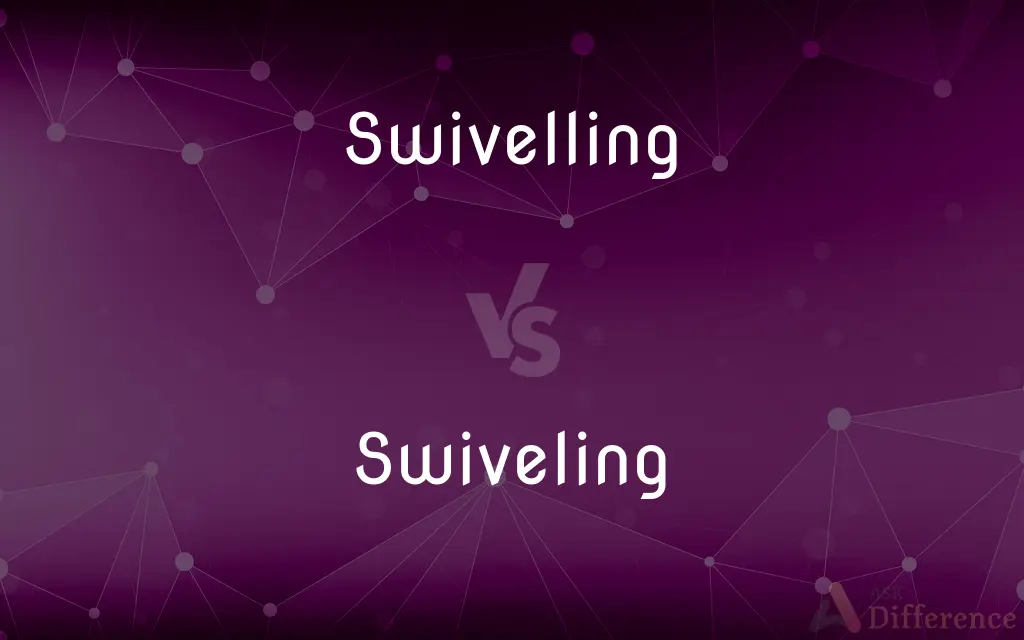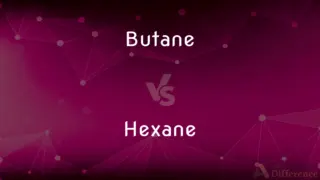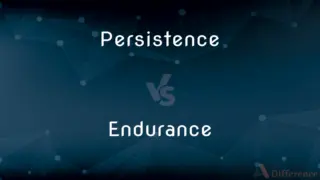Swivelling vs. Swiveling — What's the Difference?
Edited by Tayyaba Rehman — By Maham Liaqat — Updated on April 26, 2024
"Swivelling" and "swiveling" refer to the same action of rotating or turning on an axis, while the former is primarily used in British English while the latter in American English.

Difference Between Swivelling and Swiveling
Table of Contents
ADVERTISEMENT
Key Differences
Swivelling is the British English spelling of the verb that describes the action of rotating smoothly around a central point, often used to describe chair movements. On the other hand, swiveling follows American English conventions, used in the same contexts but differing in spelling by one 'l'.
When writing in British English, "swivelling" is often seen in formal and informal texts, maintaining consistency with other British spellings that often include double consonants. Whereas, in American English, "swiveling" aligns with the tendency to simplify spellings by reducing the number of letters, as seen in other words like "traveling" versus "travelling".
In terms of pronunciation, both "swivelling" and "swiveling" are pronounced the same way, emphasizing their phonetic similarity despite orthographic differences. On the other hand, the spelling variation can affect readability and acceptance depending on the reader’s familiarity with either form of English.
Educational systems in the UK teach "swivelling" as the correct form, reinforcing this spelling among British English speakers. Whereas, American schools teach "swiveling," promoting this variant as part of American English standards.
In international contexts, "swivelling" might appear in documents or publications that follow British English guidelines. On the other hand, "swiveling" is commonly used in American documents and global platforms that use American English as the standard.
ADVERTISEMENT
Comparison Chart
Spelling
Double 'l'
Single 'l'
English Variant
British English
American English
Pronunciation
/ˈswɪvəlɪŋ/
/ˈswɪvəlɪŋ/
Common Usage
UK, Commonwealth countries
USA, countries using American English
Associated Spelling Variants
Travelling, labelling, fuelling
Traveling, labeling, fueling
Compare with Definitions
Swivelling
To turn something around a pivot.
He was swivelling the camera to capture the entire scene.
Swiveling
To turn something around a pivot.
He was swiveling the camera to capture the entire scene.
Swivelling
To swing or turn in a rotating manner.
She kept swivelling her head to observe the surroundings.
Swiveling
Rotating around a central axis.
The chair was swiveling smoothly.
Swivelling
Rotating around a central axis.
The chair was swivelling smoothly.
Swiveling
A movement where something spins around.
The dancer was swiveling on her toes.
Swivelling
To pivot or rotate a mechanism or device.
The mechanic was swivelling the engine part into place.
Swiveling
To pivot or rotate a mechanism or device.
The mechanic was swiveling the engine part into place.
Swivelling
A movement where something spins around.
The dancer was swivelling on her toes.
Swiveling
To swing or turn in a rotating manner.
She kept swiveling her head to observe the surroundings.
Swivelling
A device that joins two parts in a way that allows one part to turn without turning the other.
Swiveling
A device that joins two parts in a way that allows one part to turn without turning the other.
Swivelling
To turn or rotate on a swivel or an axis.
Swiveling
To turn or rotate on a swivel or an axis.
Swivelling
To secure, fit, or support with a swivel.
Swiveling
To secure, fit, or support with a swivel.
Swivelling
To turn on a swivel or an axis.
Swiveling
To turn on a swivel or an axis.
Swivelling
(British) swivel
Swiveling
(US) swivel
Swivelling
The motion of something that swivels.
Common Curiosities
What is the main difference between "swivelling" and "swiveling"?
"Swivelling" uses British spelling with double 'l', while "swiveling" uses American spelling with a single 'l'.
Why does American English prefer "swiveling" with one 'l'?
American English simplifies spellings by reducing letters, which is seen as part of spelling reform movements.
Can "swivelling" and "swiveling" be used interchangeably?
Yes, they can be used interchangeably in terms of meaning but should match the variant of English being used.
Why does British English use double 'l' in "swivelling"?
British English often retains original spellings which sometimes include double consonants.
Is "swiveling" accepted in UK English?
It can be understood but is not the standard spelling.
Are there any pronunciation differences between "swivelling" and "swiveling"?
No, both words are pronounced the same way.
Where would I likely see "swivelling" used?
In UK-based publications and writings that follow British English norms.
Do dictionaries list both "swivelling" and "swiveling"?
Yes, most English dictionaries list both forms and indicate their usage.
Is "swivelling" accepted in American English?
It can be understood but is not the preferred spelling.
Where would I likely see "swiveling" used?
In American publications and on platforms that use American English.
How should I spell "swiveling/swivelling" in academic writing?
Use "swivelling" for British English academic writing, and "swiveling" for American English.
Can spelling variations affect the meaning of words like "swivelling" and "swiveling"?
No, spelling variations do not affect the meanings but indicate different usage standards.
How can I remember which spelling to use for "swivelling" and "swiveling"?
Remember that single 'l' is typical in American English, which simplifies spellings.
What are other examples of spelling differences like "swivelling/swiveling"?
Examples include "travelling/traveling" and "labelling/labeling".
What should non-native English speakers remember about "swivelling" and "swiveling"?
They should be aware of the audience's English variant to use the correct spelling.
Share Your Discovery

Previous Comparison
Butane vs. Hexane
Next Comparison
Persistence vs. EnduranceAuthor Spotlight
Written by
Maham LiaqatEdited by
Tayyaba RehmanTayyaba Rehman is a distinguished writer, currently serving as a primary contributor to askdifference.com. As a researcher in semantics and etymology, Tayyaba's passion for the complexity of languages and their distinctions has found a perfect home on the platform. Tayyaba delves into the intricacies of language, distinguishing between commonly confused words and phrases, thereby providing clarity for readers worldwide.














































